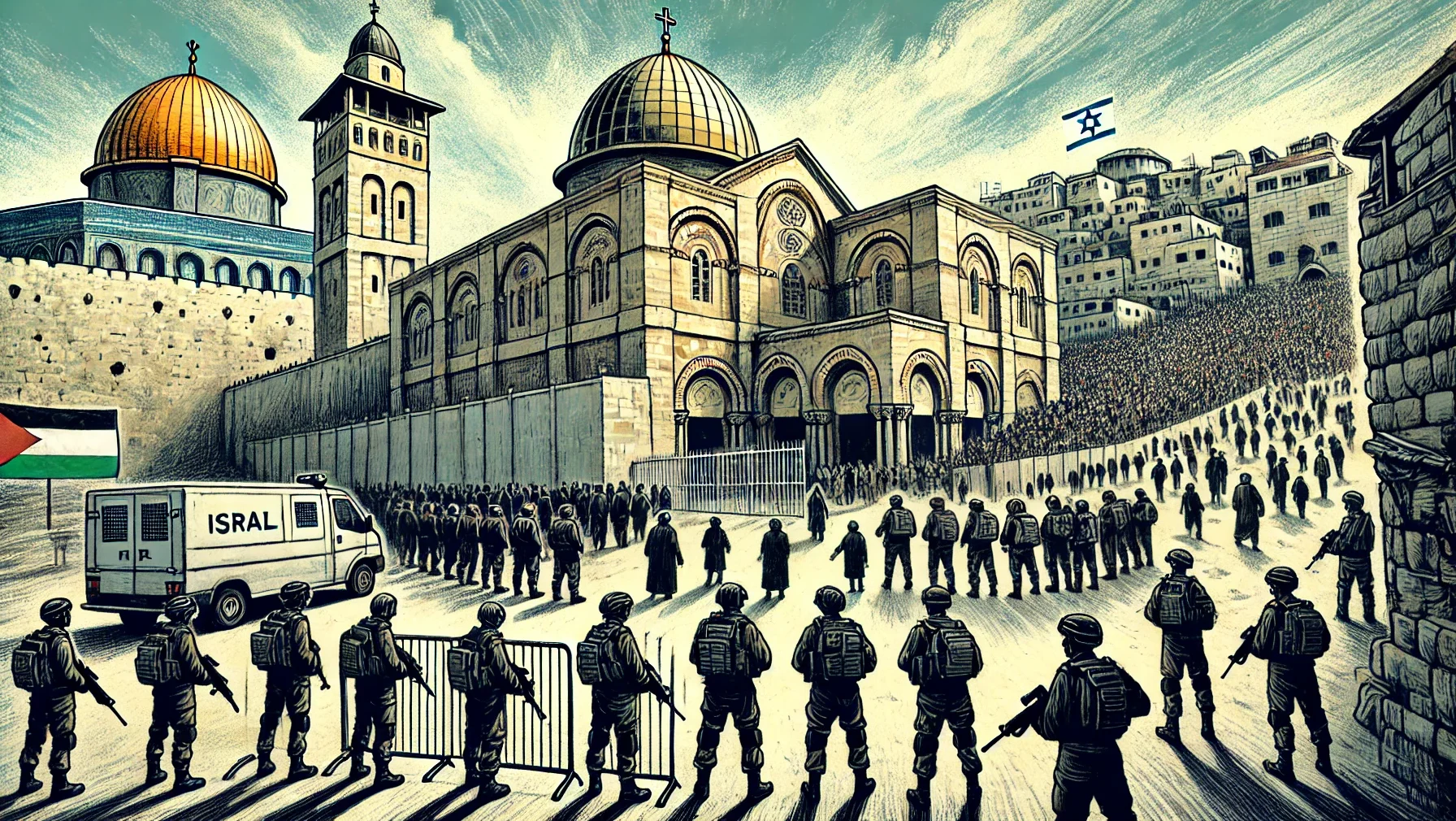Palestine Is a National and Humanitarian Issue!
Al-Masry Al-Youm, Egypt, February 20
I’ve noticed that in discussions surrounding the Palestinian cause and the unprecedented, inhumane violations and crimes inflicted upon Palestinians, the focus tends to be placed on the political and national dimensions of the conflict, often overlooking the religious and social aspects that affect all sectors of Palestinian society, including Palestinian Christians.
Ignoring the rights of Palestinian Christians in this context not only represents a deliberate avoidance of a clear truth but also constitutes a serious oversimplification of the nature of the Palestinian cause, which has never been an issue specific to one religious group but rather a struggle of an entire people against occupation, colonialism, and racial discrimination.
Palestinian Christians are an integral part of the Palestinian social and political fabric. Since the Nakba of 1948, history shows that Christians have been actively involved in national resistance, whether through political activism, armed struggle, or support for popular movements. They have also played a pivotal role in shaping Palestinian cultural identity through literature, art, media, and education.
Although the percentage of Christians has declined in Lebanon, Syria, Sudan, Iraq, and more recently in Palestine, primarily due to the migration induced by the conditions of occupation and discrimination, their presence remains evident in various aspects of Palestinian life, from Jerusalem to Bethlehem, Ramallah, and Gaza. Therefore, marginalizing discussions about them in the context of the Palestinian issue is a form of marginalizing their history, their struggle, and their ongoing tragedy.
Christians in Palestine are subjected to multiple violations, no different from those endured by Palestinian Muslims, and sometimes, they face particular attention due to the religious and cultural significance of Christian sites.
This holiday season, give to:
Truth and understanding
The Media Line's intrepid correspondents are in Israel, Gaza, Lebanon, Syria and Pakistan providing first-person reporting.
They all said they cover it.
We see it.
We report with just one agenda: the truth.


Christian holy sites in Jerusalem, such as the Church of the Holy Sepulcher and the Church of the Nativity in Bethlehem, are regularly attacked by Jewish settlers, with clear complicity and disregard from the Israeli authorities. The Israeli occupation also imposes harsh restrictions on Christians’ access to their churches and holy sites, particularly during religious holidays, severely hindering their ability to practice their rituals in addition to the ongoing attempts to Judaize Jerusalem and seize Christian properties, such as in Jerusalem’s Bab Al-Khalil case, where Israeli authorities facilitated the seizure of property belonging to the Egyptian Orthodox Church, most notably the Monastery of the Sultan (Deir es-Sultan).
Ignoring the rights of Palestinian Christians in the context of the Palestinian issue carries dangerous consequences on multiple levels:
First, distorting the Palestinian national identity by framing it as a religious conflict between Muslims and Jews, which misrepresents the true nature of the situation. The Palestinian cause is not a religious issue; it is primarily a national and humanitarian one. I caution against disregarding Palestinian Christians in political and media discourse, as this harms Palestinian national unity and offers the occupation an opportunity to sow artificial divisions.
Second, undermining international solidarity with Palestine, as emphasizing the suffering of Palestinian Christians, could potentially garner greater international sympathy for the Palestinian cause, particularly in the West. By neglecting this aspect, we squander a crucial opportunity to mobilize international support against the occupation’s practices.
Third, encouraging the occupation to target them even more. By failing to highlight the suffering of Palestinian Christians, the Israeli occupation is allowed to continue its aggressive policies without deterrence. This silence also allows Israel to exploit international and regional indifference to further its policies of Judaization and racial discrimination against all Palestinians, irrespective of their religious affiliation.
A comprehensive discussion of the Palestinian cause must reflect all facets of Palestinian society. The Palestinian struggle cannot be reduced to a single category, group, or resistance movement; it must encompass the suffering of the entire population, including Palestinian Christians, who endure the same oppression and tyranny.
Excluding discussions about the rights of Christians in Palestine is not merely a media or political oversight but a grave error that results in marginalizing an authentic component of the Palestinian national fabric. The Palestinian issue is not a religious issue; it is a national and humanitarian one.
Hany Labib (translated by Asaf Zilberfarb)

